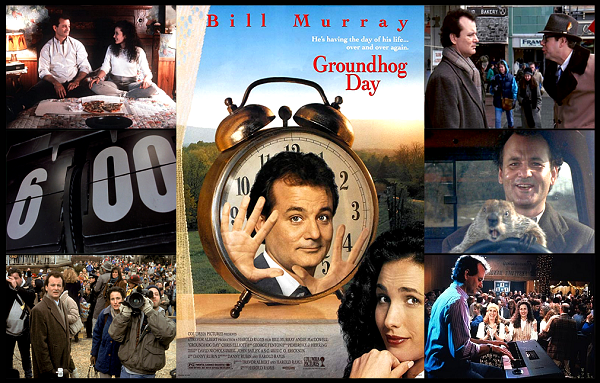Boredom and other psychological effects of lockdown
Total Views |
-Amol Pawar
We all are stuck in lockdown. This makes us remember the film "Groundhog Day (1993)". Movie depicts a man who is stuck in the time loop and forced to relive the same day every day. Right now the entire world is caught in this time loop because of COVID-19 and lockdown. We are living the same day over and over again.
Living in lockdown limits our activities and we all are doing one or other way the same thing again and again. This monotony is driving people crazy. If you are following news across the world you will find a sudden rise in domestic violence. I feel this is one of the indications that people are losing their composure. Before lockdown, in our routine of life, we used to gather daily new memories from our activities. These memories serve us to differentiate one time from another or one day from another.

"At the point when we glance back at those days and weeks where very little happened; where it’s the same every day. Nothing new collected in memory and time has gone pretty swiftly," says Marc Wittmann, a German psychologist from Institute for Frontier Areas in Psychology and Mental Health in Freiburg, Germany.
Wittmann has written extensively about “felt time.” He says that while monotony can compress the brain’s perception of time over long periods, boredom can slow down the perception of time’s passage “in the here and now” — meaning minutes or hours seem to drag on and on.
Along with boredom, anxiousness can also make time appear to slow to a snail’s pace, he says. While the overlapping COVID-19-related threats of sickness, economic hardship, and social instability are enough to make anyone feel uneasy, experts who study social isolation say that too little face-to-face interaction can be a potent promoter of anxiety in and of itself.
Paranoia, missing routines, and disorientation
“Human beings by their nature are social animals, and when you deprive them of social interaction, that has massive repercussions,” says Dr Terry Kupers, a psychiatrist at the Wright Institute in Berkeley, California.
“One of the first symptoms to emerge is anxiety,” Kupers says. “People who are isolated have panic attacks and feel very anxious.” Paranoia is another common emotion.
“When you don’t have other people to talk to, thoughts and ideas can get very jumbled.” He says that human beings seem to be somewhat hardwired for paranoid thinking and that spending time in the company of others tends to moderate this emotion. When that kind of interaction is denied or limited, thoughts can wander into irrational places.
Video Calls — as well as regular phone calls, text exchanges, and other digital interactions — are surely better than nothing, Kupers says. “When that’s the only way [to connect], I think it’s important to do that,” he adds. “But I think [these are] nowhere near the same as the contact we would have if we were together in a room.”
Finally, he says besides missing social interactions, the lack of a regular routine can cause issues. “A disorientation comes from not having markers associated with a daily schedule,” he says. To avoid this disorientation, it’s helpful to get up at the same time each day and to follow a regular schedule of work, chores, exercise, and other activities.
“Creating a schedule that approximates normal life can help one from falling into disorientation and confusion,” he says. Going to bed and getting up at the same time each day can also help calibrate the body’s internal clocks in ways that promote deep sleep and prevent daytime grogginess and other cognitive symptoms.
The anxious brain craves “flow activities”
While distraction is normally viewed as a bad thing, it can be helpful in certain situations — like when a person is anxious and trying to avoid unconstructive thoughts.
“There are things the anxious brain wants to do, and those are not necessarily helpful things,” says Kate Sweeny, a professor of psychology at the University of California, Riverside. Worrying is one of them, she says. Fretting about COVID-19 or the challenges it presents is useful if a person can take steps to address those concerns. “But if you’ve done what you can, your goal should be to actively engage in activities that distract your brain from those anxious thoughts,” she says.
Some of her research has examined how different forms of distraction can help people weather periods of uncertainty and anxiety-like when someone is awaiting the results of a biopsy. She says that the most helpful activities are ones that induce “flow,” or the experience of complete enjoyment or absorption.
A riveting film or TV show could fit the bill nicely, which helps explain why a lot of Americans fell hard for the misfit intrigue of Tiger King. But Sweeny says that the most generation-y pursuits tend to have elements of personal challenge and feedback.

